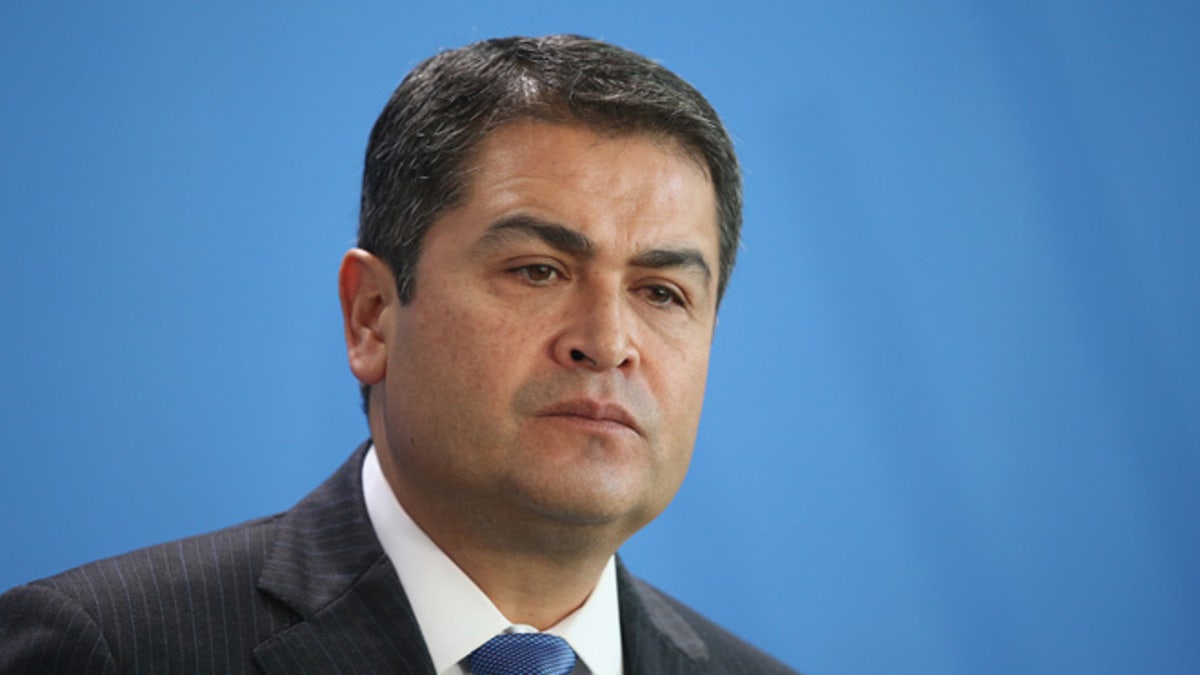
Juan Antonio Hernandez Alvarado. (Facebook: Tony Hernandez Diputado)
A brother of Honduran President Juan Orlando Hernandez was charged by federal prosecutors Monday with conspiring to import tons of cocaine to the United States, as well as weapons offenses and lying to federal agents.
Juan Antonio Hernandez Alvarado, aka Tony Hernandez, was arrested Friday in Miami and was due to appear in federal court there on Monday.
Federal prosecutors in New York described the suspect, a former Honduran congressman, as "a large-scale drug trafficker" who worked for more than a decade with compatriots as well as traffickers based in Mexico, Colombia and other countries to receive, process and distribute cocaine making its way through Honduras en route to the United States. Hernandez used cocaine laboratories in Honduras and Colombia, where some drug packages were stamped with the initials "TH," according to investigators.
Prosecutors also said Hernandez coordinated and occasionally provided security for drug shipments within Honduras, even using members of the country's national police force for the job.
The drug-related corruption allegations that swirled around Tony Hernandez have cast a shadow over his brother's government in a Central American country that is a major transit hub for cocaine.
Honduras is also the homeland of thousands of migrants who recently have been traveling toward and are now camping out at the U.S. border with Mexico, saying they are escaping a poor economy and oppressive gang crime.

Pictured: Honduran President Juan Orlando Hernandez in 2015. (Getty Images, File)
"Hernandez was involved in all stages of the trafficking through Honduras of multi-ton loads of cocaine that were destined for the U.S.," Manhattan U.S. Attorney Geoffrey Berman said in a statement. Raymond Donovan, who heads U.S. Drug Enforcement Administration special operations, said Hernandez is accused of working with "some of the world's most deadly and dangerous transnational criminal networks" to "flood American streets with deadly drugs."
The indictment also claimed Hernandez paid and took bribes to smooth the flow of drugs and money — at times paying off law enforcement officials for information to safeguard drug shipments, and at others soliciting bribes for himself and other high-ranking officials.
TRUMP DEFENDS USING TEAR GAS ON CARAVAN MIGRANTS WHO RUSHED TOWARD BORDER
A convicted trafficker, Devis Leonel Rivera Maradiaga, testified last year in New York that Hernandez asked him for a bribe in exchange for government contracts. Rivera was trying to get Honduras' government to pay its debts to a company his cartel used to launder money.
The indictment said Rivera paid Tony Hernandez $50,000 during their video-recorded 2014 meeting.
In a statement after the testimony, Tony Hernandez denied involvement in illegal activities and said he was "at the disposition of Honduran or international justice for any investigation."
He noted that he'd given voluntary testimony to U.S. investigators in Miami in 2016 and testified to Honduras' Public Ministry last year.
"I reaffirm strongly that I am ready to collaborate with any investigation that is carried out in a serious fashion," he said. "And like I did before, I am ready to present myself again to authorities in the United States if it is required because he who doesn't owe, doesn't fear."
DHS BLASTS '60 MINUTES' REPORT ON FAMILY SEPARATIONS: 'REVISIONIST FICTION'
After his brother's arrest Friday, the president's administration reiterated an earlier statement that "no one is above the law, and every person must have the right to a legitimate defense and be presumed innocent."
The statement also said that the president maintains that everyone is responsible for his or her actions and can't shift accountability to other people. The government said it would see that justice was carried out with "absolute openness and strict observance to the law."
The Associated Press contributed to this report.

